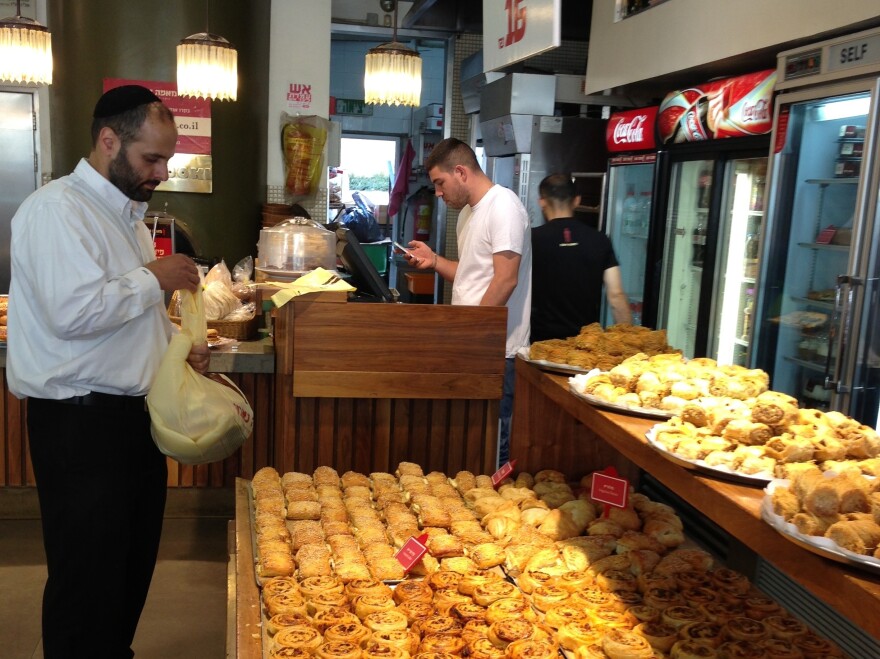Anyone who follows a particular diet knows the challenge of eating out. How do you know exactly what's in the food?
For Jews who observe kosher dietary laws, it's important to keep meat and dairy meals well separated, both in where they are prepared and when they are eaten. In Israel, restaurants get certificates to show their kosher status from the , a council led by two rabbis that regulates everything connected with Jewish religious law, including birth, death and marriage.
And now, the Chief Rabbinate wants to change the shape of pastries.
Not all pastries. The prime target is cafe-made bourekas, greasy pockets of dough filled with different kinds of cheese, spinach, mashed potato or meat. Originally from Turkey and the Balkan countries, bourekas are popular enough in Israel that in Jerusalem: A Cookbook, chefs Yotam Ottolenghi and Sami Tamimi call them "a major contender for the title of national dish, at least on the Jewish side."
The rabbinate's goal is to inform people what's inside, so they can keep kosher. Boureka shapes already say something about the filling. "Potato is always rectangular," says Freddy Ben-Hur, in between making coffee, squeezing orange juice, and bagging bourekas in his small cafe in central Jerusalem. "Spinach is round."

Spinach and potatoes fall into a kosher category known as pareve (pronounced PAR-vuh), which is approved to eat with either meat or dairy. Dairy bourekas — all sorts of different cheeses — have traditionally been triangular.
The new rabbinate rules shake off the past and get a lot more specific. According to Israeli media reports, pareve bourekas made with phyllo dough would have to be triangular or spiral. Phyllo dough filled with cheese would be round, or cigar- or finger-shaped. Croissant-style dairy pastries, including rugelach, would come in crescent shapes, while pareve versions of these croissants would be rectangles.
"In reality, this will never fly," says Oser Ne'eman, owner of a chain of dozens of cafes selling bourekas and other pastries all over Israel. He says these changes would cost a lot to implement — imported boureka machines cost hundreds of thousands of dollars. "What we're going to have to do instead is put up signs."
Boureka sellers don't have to follow the new rules, which are due to go into effect in August. But having the right kosher certification can affect business, says cafe owner Ben-Hur. He spends a lot of money on the kosher inspections, and says customers look for the official seal before they buy.
"There are more than 10 kinds of kosher certificates," he says. "Customers ask which I have all the time."
A kosher customer in one of Ne'eman's shops said more clarity about ingredients would be welcome.
"Religious people are very careful to not eat meat and cheese together," says Yossi Livi, who was only having a coffee himself. "It's a great idea to find a way that there's no confusion."
The rabbinate says it is responding to complaints from people that new varieties of pastries led to new shapes, making them unsure what was inside. It also says rabbis consulted with large bakeries before putting out new rules.
Ne'eman wasn't among those consulted.
"I don't think the rabbinate has bad intentions," Ne'eman says. "I think they are sincerely trying to prevent the public from being misled. But if they do succeed in implementing this regulation, there really is no limit to their power."
Copyright 2021 NPR. To see more, visit https://www.npr.org. 9(MDAxODg3MTg0MDEyMTg2NTY3OTI5YTI3ZA004))




